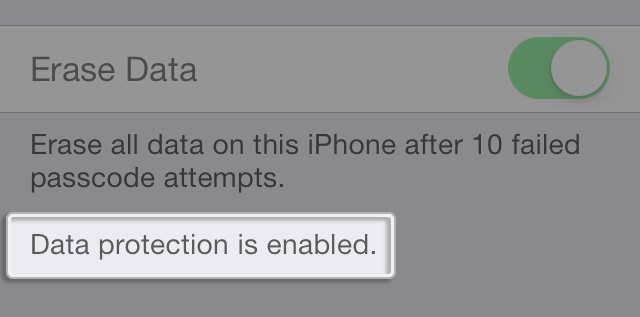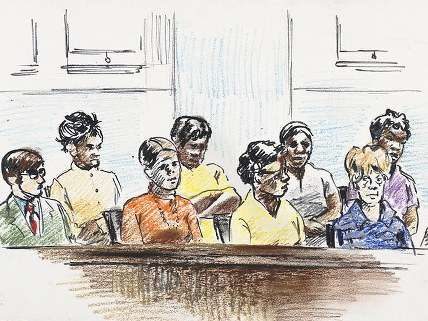How to Make Life Inconvenient for Politicians Not Just on Election Day — But Every Day
Voting is fine, but there are better ways to keep government officials on their toes.

Voting is important—to politicians, because it gives them a sense of validation. Good-government types like the whole balloting ritual, too, because they get warm fuzzies from seeing others invest time and energy into the institution that defines so much of their sense of self-worth. That's why you'll be endlessly nagged—and even receive implied threats—to punch your card, fill in the oval, or tap the screen for the candidate who disgusts you least. But in terms of influencing government officials, grimly performing what others insist is a duty every couple of years and then (with good reason) bitching about the outcome isn't the last word in civic participation.
It's not that you shouldn't vote. Even 19th-century anarchist Lysander Spooner thought casting a ballot was perfectly justifiable as an act of self-defense against the results of the election process. But for all of the mind-blowingly embarrassing nagging voters are subject to, and even the creepy threats by political parties and activists groups to out non-voters to their neighbors, most of the candidates hoping you'll exercise the franchise on their behalf also hope you'll leave your activism at that (well, they'd like the occasional check, too). That's because if you got really involved beyond the electoral popularity contest it could be…inconvenient.
Here are three ideas for making life inconvenient for government officials not just on election day—but every day.
We're Watching You

Who you vote for is your secret," a Democratic Party mailer warns New York voters. "But whether or not you vote is public record."
So politicians are going to shame the public over conduct? Really? But there's the seed of a good idea in there. They want to watch us? We should be keeping a closer eye on them. Like, nowhere-to-hide close.
If shaming is the goal, officeholders of all stripes would seem to be a hell of a lot more vulnerable than the average citizen. Lawmakers, law enforcers, and bureaucrats live next door to us, and say and do stupid things at least as often as the average Jane or Joe. After the kerfuffle made over Mitt Romney's 47 percent comments, you'd think that politicians would be more careful about what they mutter to…anybody. And maybe some of them are. But if their public statements are anything to go by, an awful lot of gems are slipping by in unguarded moments.
That's such a waste.
The same could be said of law enforcers and other agents of the state. Video and audio recordings of stupid (and often brutal) cop tricks have done more to awaken Americans to the reality of the arm-twisters employed by the government than any number of viewings of Serpico (or op-eds by Serpico) ever could. They just keep coming.
So keep them coming—the recordings, that is, unless the stupid cop tricks stop.
Sure, you don't rub shoulders with John McCain or Elizabeth Warren (my condolences, if you do), but maybe a city councilman or county supervisor frequents your favorite diner and shows potential to devolve into one of them in the future. And you have a smartphone. Capture that magic moment!
Or, maybe you just let them know that you're waiting for a magic moment, and let anxiety do its work for you.
If politicians are so eager to let people know "whether or not you vote," return the favor. If the legislator down the street votes for something especially bossy, expensive, or intrusive, dox the SOB. Sharing awkward information about people isn't just for feuding video gamers anymore.
"Public record," indeed.
We're Evading You

Last year, tech guru and start-up veteran Balaji Srinivasan called on innovators to give "people the tools to reduce the influence of bad policies over their lives without getting involved in politics; the tools to peacefully opt out."
That's already happening, and we need more of it.
Writing yesterday in the Financial Times, Robert Hannigan, the new chief of the GCHQ (that's the NSA for across-the-pond tea drinkers) complained bitterly about the surveillance-evading powers of increasingly available modern technology:
Techniques for encrypting messages or making them anonymous which were once the preserve of the most sophisticated criminals or nation states now come as standard. These are supplemented by freely available programs and apps adding extra layers of security, many of them proudly advertising that they are "Snowden approved".
Boo hoo. His complaints was framed in the context of fears about ISIS—basically, because terrorists can use encryption, tech firms should have to cripple privacy protection for all of their customers around the world so that government snoops have an easier job.
Right.
Hannigan's sweet, sweet tears of frustration over a public eager to evade government control and innovators happy to serve that desire indicates that Srinivasan's "opt out" option is already in effect. Indeed, Hannigan's whining was largely prompted by Apple's and Google's plans to encrypt their products by default for a public very leery of nosy governments.
But there's a world beyond data protection, including digital currencies, shared files for 3D printers and CNC mills, and online marketplaces for forbidden products. That world will grow and expand as people push their creative boundaries, develop new tools for opting out of political control, and make them easy to use. And that world will grow as other people actually use those tools.
So put your skills, and choices, to use and expand the range of human activity that's beyond the reach of politicians and bureaucrats. If you "elect" to do that, you will make the Robert Hannigans of the world very unhappy.
We Get the Last Word on Your Laws

There's a reason the New Hampshire Supreme Court recently ruled that a law everybody knew required judges to tell juries about jury nullification meant nothing of the sort: As part of the governing establishment, the justices felt threatened by the law. With a simple decision, they gutted the requirement and (they hoped) increased the chances of keeping jurors in the dark about their rights.
But even those justices conceded that "jury nullification is the undisputed power of the jury to acquit, even if its verdict is contrary to the law as given by the judge and contrary to the evidence." The power remains—it's just not in the jury instructions.
So use it.
Jury nullification works—in New Hampshire, among other places. In 2012, a Belknap County acquitted Doug Darrell, a Rastafarian charged with cultivating marijuana, because they openly considered the law unjust.
"He grows for his own personal religious and medicinal use," said one juror. "I knew that my community would be poorer rather than better off had he been convicted."
In 2010, after a Montana judge realized he couldn't find enough jurors willing to consider a "guilty" verdict in a marijuana case, he didn't even bother to seat a jury.
"A mutiny," is how the prosecutor described the situation.
"I think it's going to become increasingly difficult to seat a jury in marijuana cases, at least the ones involving a small amount," Judge Deschamps marveled.
It would be nice if the judge instructed you and your fellow jurors about jury nullification. But you already know, and you can spread the good word about a very effective use of a vote.
"I Voted"—To Mess With You
None of these ideas, by themselves, will change the world, but neither will a solitary ballot cast every couple of years. Small constant actions can have an effect, especially when you vote to embarrass politicians, free prisoners, and protect privacy. You can probably forget about that "I Voted" sticker, though. It will get a little tattered when every day becomes your own sort of election day.
Do you have other ideas for poking the state with a sharp stick? Share 'em like a video of a senator nabbing an envelope of cash in the comments below.
